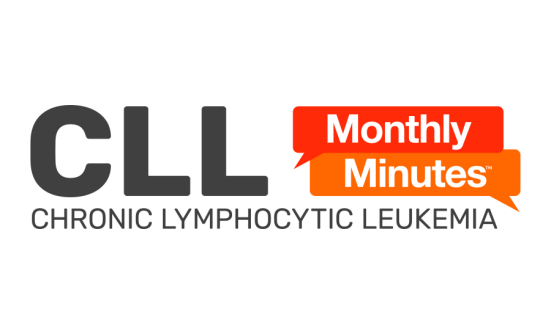Cancers of the body’s B-cells, such as chronic lymphocytic leukemia (CLL), depend on signaling molecules like Bruton tyrosine kinase (BTK) to survive and grow.1 Blocking this signaling with BTK inhibitors such as ibrutinib has proved to be an effective way to treat CLL in addition to other B-cell cancers.1 Although ibrutinib has revolutionized treatment for CLL, the recent development of next-generation BTK inhibitors such as acalabrutinib and zanubrutinib holds the promise of maintaining the efficacy while improving the safety of this class of drugs.1,2
Early-phase trials have shown that zanubrutinib is active and well-tolerated in patients with CLL and small lymphocytic lymphoma (SLL).2,3 The ongoing ALPINE clinical trial (NCT03734016; https://clinicaltrials.gov/ct2/show/NCT03734016) has been designed to compare zanubrutinib with ibrutinib in patients with CLL or SLL who have received ≥1 prior therapies.4,5
Patients enrolled in ALPINE are receiving either zanubrutinib or ibrutinib and are being followed until their disease progresses.4,5 The main objective of the study is to determine how many patients show a response to treatment.4,5 Other assessments include how long patients survive without disease progression, how long patients survive, and, among other safety signals, how many patients develop an abnormal heart rhythm (atrial fibrillation) known to be associated with ibrutinib use.4,5
Recently, ALPINE investigators presented preliminary results from the study, which represent data from the first 12 months after 415 patients were enrolled.5 Most patients in the study were aged >65 years, the majority were male, and as many as 10% had received >3 lines of prior cancer therapy.5 Approximately 12% of patients had high-risk CLL, meaning that their cancer had a genetic mutation that is expected to lead to a poorer outcome.5
At the time of this preliminary analysis, with half of all patients having been followed for ≥15 months, 78% of patients have shown a response with zanubrutinib compared with 63% with ibrutinib.5 Notably, response rates were higher in patients with high-risk CLL who received zanubrutinib versus ibrutinib.5 Furthermore, compared with ibrutinib, more patients receiving zanubrutinib were alive and without disease progression after 1 year, and fewer patients in the zanubrutinib group had died.5
Safety results showed a similar trend, with zanubrutinib outperforming ibrutinib in several metrics. For instance, abnormal heart rhythms were about 5 times more frequent in patients receiving ibrutinib.5 Rates of major bleeding episodes and side effects leading to treatment discontinuation or death were higher in the group receiving ibrutinib.5 One side effect that was more common in the group receiving zanubrutinib was neutropenia, an abnormally low number of white blood cells called neutrophils.5 Although neutropenia may result in patients having more or more serious infections, serious infections were still more common in the group receiving ibrutinib.5
Overall, the preliminary results of ALPINE suggest that zanubrutinib may have superior efficacy and an improved safety profile compared with ibrutinib in previously treated patients with CLL.5 The ALPINE study is expected to be completed by August 2022, with final results published sometime thereafter.4
References
- Tam CS, Trotman J, Opat S, et al. Phase 1 study of the selective BTK inhibitor zanubrutinib in B-cell malignancies and safety and efficacy evaluation in CLL. Blood. 2019;134:851-859.
- Isaac K, Mato AR. Acalabrutinib and its therapeutic potential in the treatment of chronic lymphocytic leukemia: a short review on emerging data. Cancer Manag Res. 2020;12:2079-2085.
- Tam CS, Robak T, Ghia P, et al. Zanubrutinib monotherapy for patients with treatment naïve chronic lymphocytic leukemia and 17p deletion. Haematologica. 2020;Online ahead of print:10.3324/haematol.2020.259432.
- ClinicalTrials.gov. A study of zanubrutinib (BGB-3111) versus ibrutinib in participants with relapsed/refractory chronic lymphocytic leukemia (ALPINE). https://clinicaltrials.gov/ct2/show/NCT03734016. Accessed August 23, 2021.
- Hillmen P, Eichhorst B, Brown JR, et al. First interim analysis of ALPINE study: results of a phase 3 randomized study of zanubrutinib vs ibrutinib in patients with relapsed/refractory chronic lymphocytic leukemia/small lymphocytic lymphoma. Presented at the 2021 European Hematology Association Meeting, June 11, 2021. Abstract LB1900.















